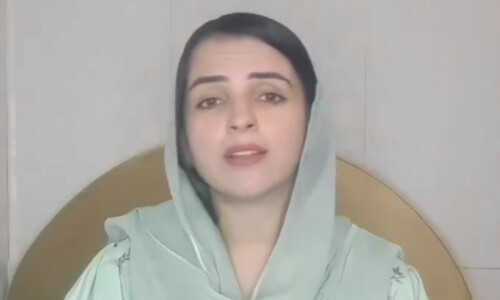WHEN foreign delegates to the second congress of the Communist International reached Petrograd 100 years ago this month, the atmosphere was somewhat different from that of the previous year’s founding congress.
The incipient Russian Soviet state was more firmly grounded, although external threats remained. The journey still wasn’t an easy one. Three delegates died on their way. Earlier in 1920, the American journalist John Reed — whose eyewitness account of the 1917 Bolshevik revolution, Ten Days That Shook the World, remains a classic — was thwarted in his attempt to return to his homeland. The conditions of his imprisonment in Finland are believed to have contributed to his death later that year, but his often dissenting opinions echoed loudly in the conference chamber.
Despite the exigencies, the second congress was more representative than the first, with delegates not just from Europe and the US, but also Persia, Turkey and the Dutch East Indies. The most prominent participant among those representing “the toilers of the East” was Manabendra Nath Roy, who spoke for Mexico and British India, and played a key role in founding the Indian communist movement in Tashkent.
M.N. Roy also challenged Lenin’s thesis on national liberation movements, arguing that the advice on collaborating with “bourgeois democratic” forces in the colonies ought to be restricted to aiding “national revolutionary” entities. Lenin accepted the critique and asked Roy to reformulate the document, which was endorsed by the congress as a joint Lenin-Roy thesis.
A century ago, the aim of a Soviet global federation did not seem illusory.
The debate on national liberation movements also dwelt on Palestine, with the Zionist point of view — which favoured a “colonisation” aimed at liberating both Jews and Arabs, but not a “Jewish state” — encountering opposition from other Jewish factions, which viewed the very idea as a travesty. The reverberations from those days have echoed through the ensuing century. A communist Zionist would be hard to find nowadays, but so-called liberal Zionism recently suffered a blow when one of its leading lights in the US, Peter Beinart, effectively abandoned the misbegotten creed by conceding that a single-state solution was the only viable alternative to the unacceptable Israeli status quo.
Many other key debates at the congress, dwelling on parliamentarism, participation in organisations such as the British Labour Party, and whether trade unions with reactionary leaderships ought to be confronted from within or without, may seem esoteric, but similar arguments have resonated ever since — witness the current debate among its left-wing elements over whether it’s worth clinging on to the reactionary post-Corbyn Labour Party.
There was no dearth of disagreements. Comrades from Germany, Italy, France and the Netherlands, in particular, verbally combated each other as well as the two main Russian personalities conducting the proceedings, Grigory Zinoviev and Karl Radek (who also represented Poland). The British suffragist Sylvia Pankhurst remained adamant that the Labour Party was poison. The Russians, including Lenin, were inclined to be a great deal more accommodating, arguing that the likes of the Labour Party, as well as the rapidly expanding trade unions in Britain, the US and elsewhere, remained viable avenues for shifting the tide towards the destruction of the bourgeois state.
In today’s context, perhaps the two most interesting perorations were Lenin’s opening overview of the international situation — before the congress, which opened on July 19, 1920, moved on to the Kremlin — and Leon Trotsky’s closing address on Aug 6. Both kept a close eye on global developments, not least through regular conversations with the visiting delegates, and expounded at length on the circumstances in countries from Britain, France and Italy to the US, Persia and India.
Their views on the role of the US, following the Treaty of Versailles and the establishment of the League of Nations, which was both sponsored and neglected by Woodrow Wilson, are predictably acerbic. Trotsky sees Wilson’s campaign as “an attempt by the American plutocracy, the New York Stock Exchange, to subordinate Europe and the entire world to itself”, noting that it was held back by Britain, with its superior naval fleet and “the richest experience in matters of world plunder and rape”. He speaks of the Indian Ocean as a “British lake” ringed by colonial subjects in “Egypt, Persia, Afghanistan, Baluchistan and India”.
Back then, the aim of a Soviet global federation did not seem illusory. Some of the delegates from Moscow went on to the congregation of the “peoples of the East” in Baku. The aim of a worldwide revolution never came to fruition. An estimated two-thirds of the participants in the second congress perished in Stalin’s purges.
Today’s world bears little resemblance to the future the delegates in Moscow imagined 100 years ago, but it’s not all that different from what they were militating against.
Published in Dawn, July 22nd, 2020












































